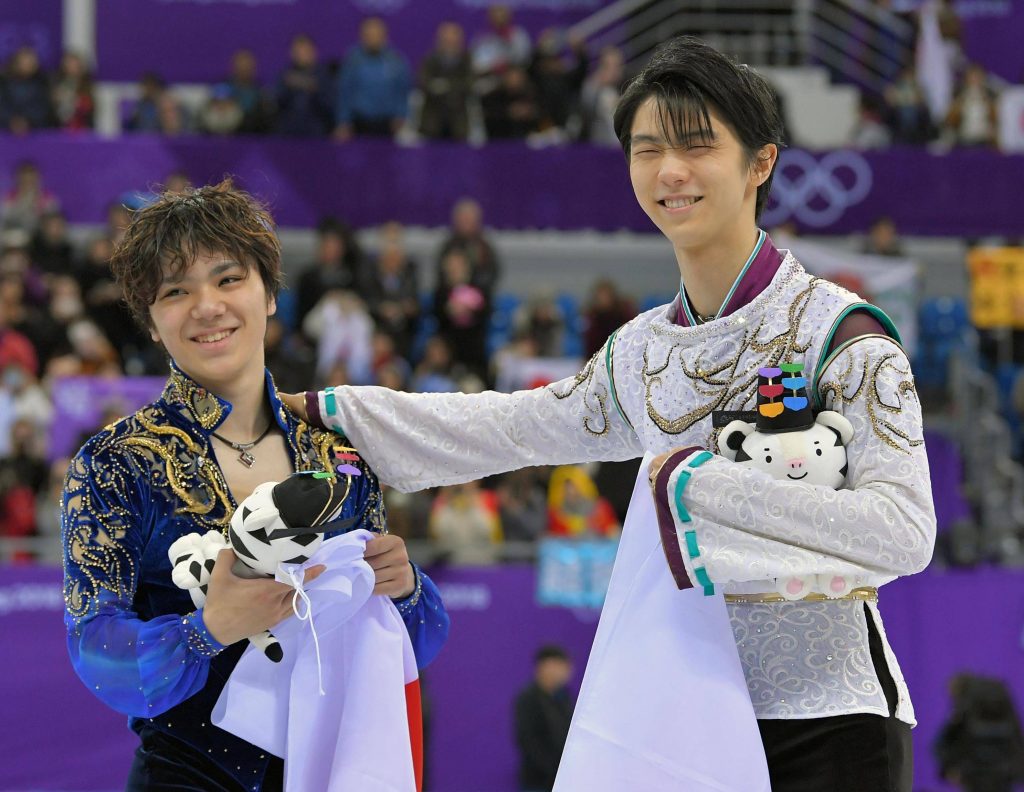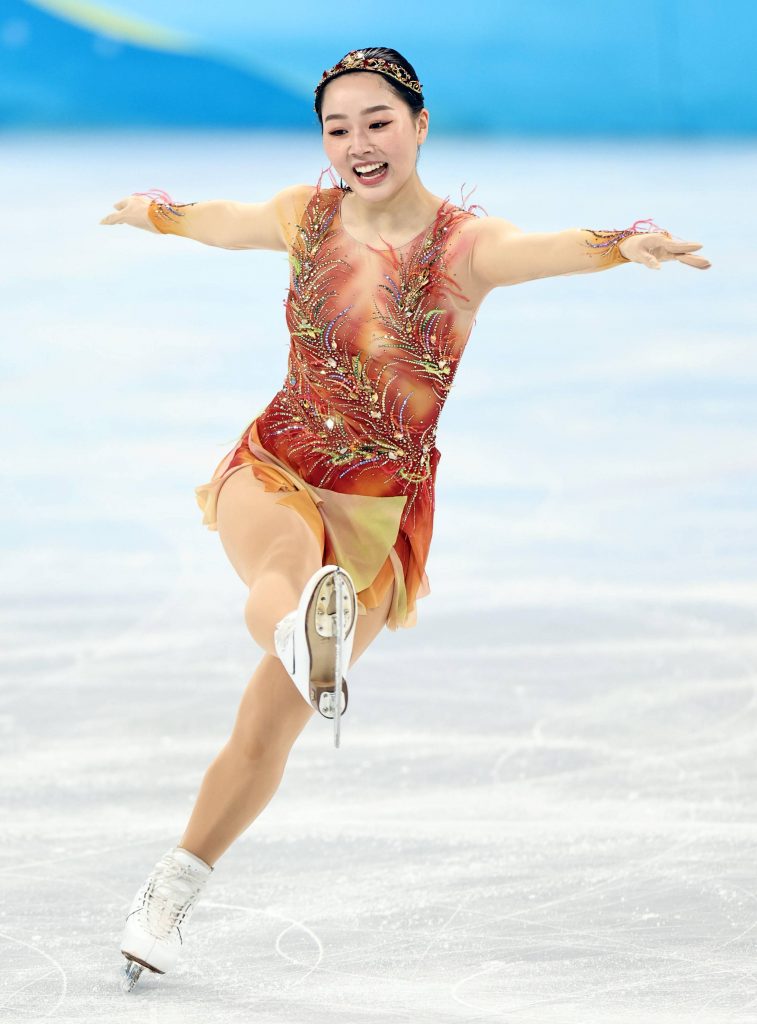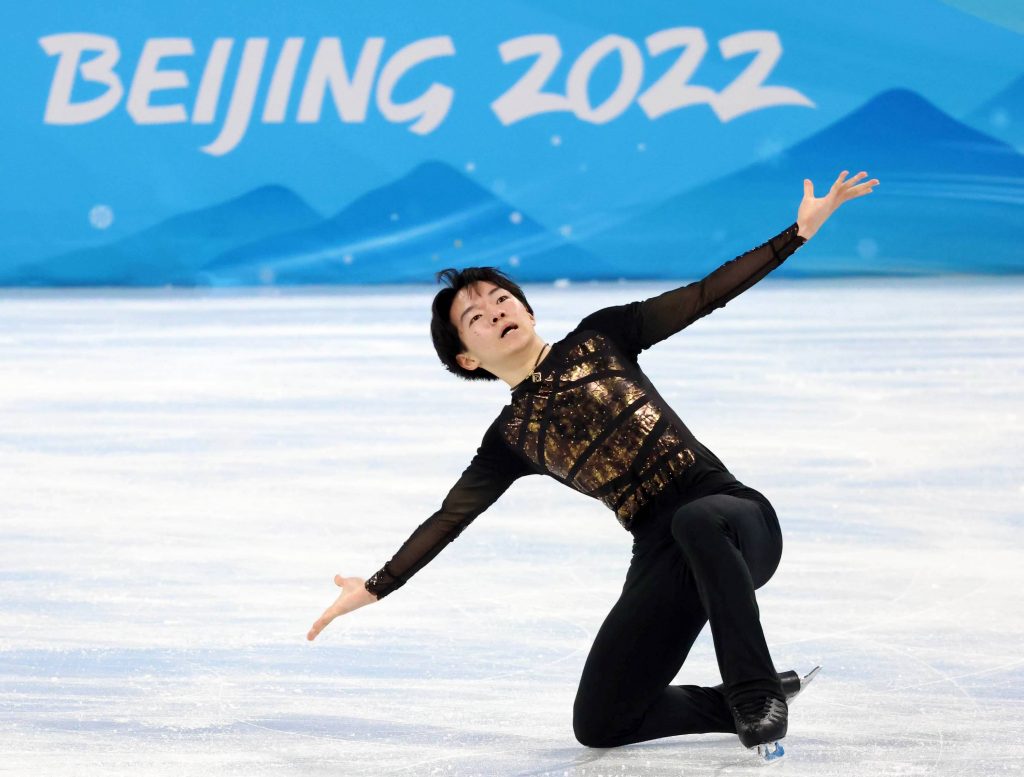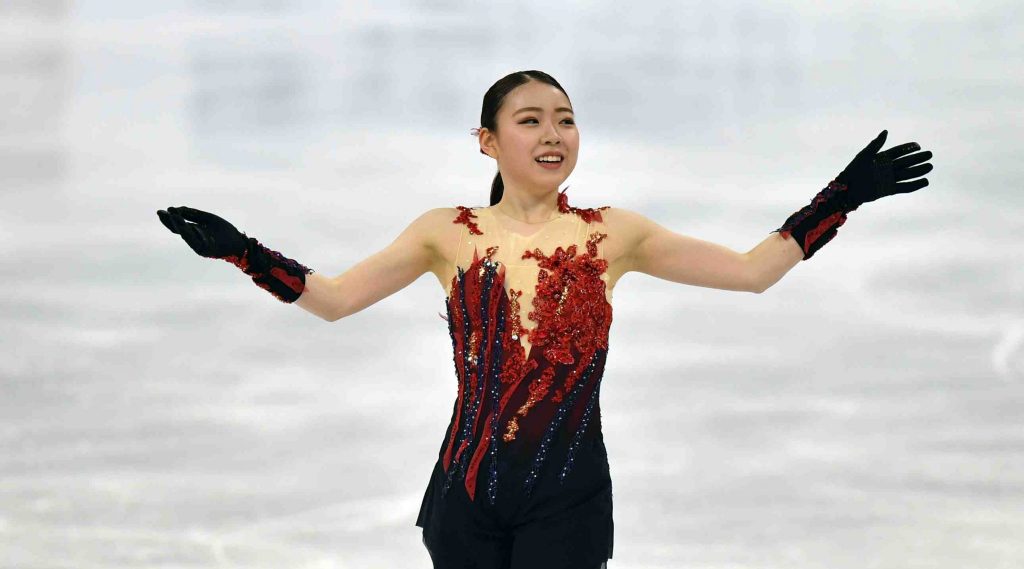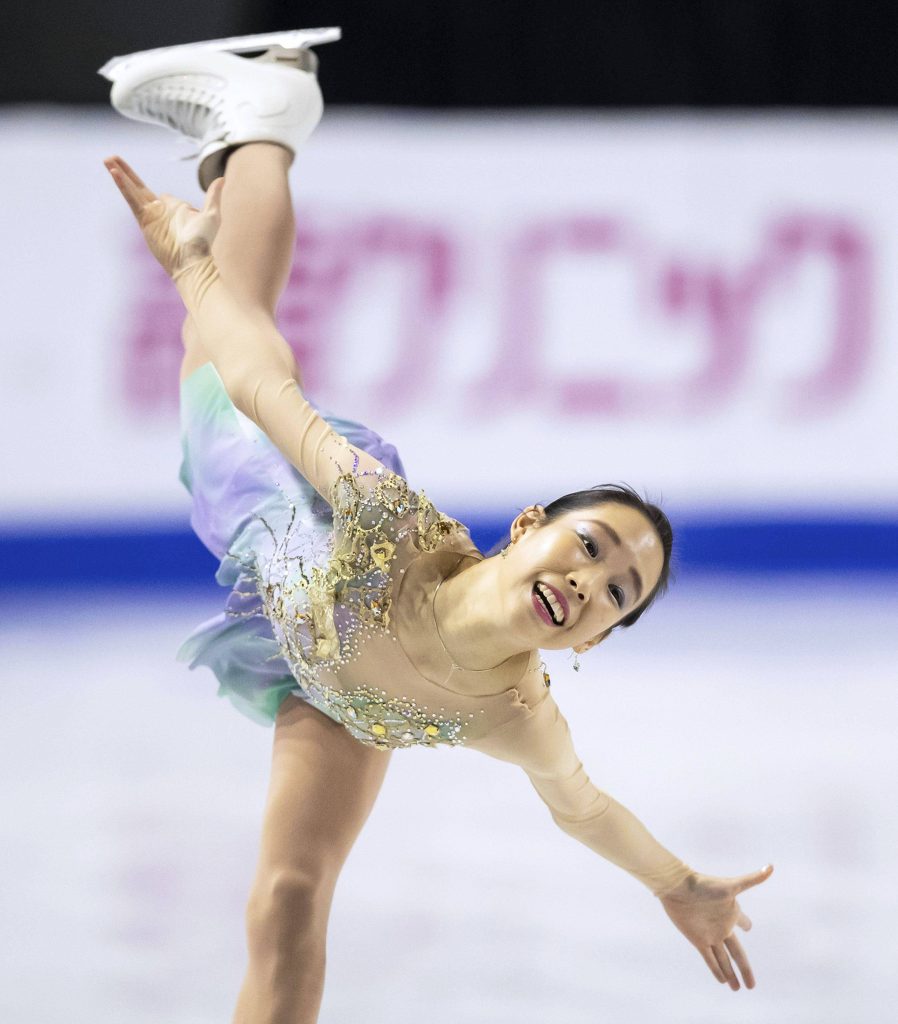
Best of Ice Time
Last of a special series of 3
This exclusive column provides a look at Satomi Ito, one of the top costume designers in the world and a personal favorite of two-time Olympic champion Yuzuru Hanyu.
Published on jackfigure.com in June 2020, Ito discussed her upbringing and how she came to be the choice of top Japanese and foreign skaters for her appealing costume designs. Ito has become a star in her own right in the sport.
She revealed her thoughts on seeing gold medalist Hanyu and silver medalist Shoma Uno standing on the podium at the 2018 Pyeongchang Olympics wearing her costumes, and how her work has evolved through the years. Ito, who remains at the top of her profession now, also talked about her future plans.
Getting a Start in Costume Designing
Japan’s rise on the global skating scene over the past 15 years has propelled the sport’s popularity to meteoric heights domestically and made the country a powerhouse on the ice.
Along with the likes of two-time Olympic champion Yuzuru Hanyu, three-time world champion Mao Asada and Olympic medalists Daisuke Takahashi and Shoma Uno, skating has also discovered another Japanese superstar.
She is 32-year-old Satomi Ito, the costume designer who hails from Chiba Prefecture and is a favorite of elite skaters from both Japan and overseas.
In an exclusive interview with jackfigure.com, the gifted and visionary designer discusses her background, her rise in skating, and her plans for the future.
“During my adolescent days I aspired to become a comic artist, screenwriter or a writer,” Ito stated. “When I was in high school, I suddenly found joy in creating clothes, so since then I have wanted to work in the fashion industry [as a designer and creator].”
Educational Opportunity in the UK
I wondered if Ito was a skater or athletic as a youngster.
“I don’t skate,” Ito commented. “When I was a student, I was a track and field athlete, but it didn’t last at all and I quit immediately.”
After studying at a vocational school in Japan following high school, Ito moved to the United Kingdom to further her education. I asked how her time there has impacted her philosophy as a designer.
“It was only my last year that I transferred to Nottingham Trent University School of Art & Design in England, so I was not taught anything technical there,” Ito noted. “I learned the importance of concept-making and presentation skills.
“In Japan, people will recognize and assess you for the final product. However, I felt that in England, the process is also seen to be very important,” Ito continued. “For instance, if you say, ‘My favorite color is black because I think it’s cool,’ they would ask you, ‘Why do you think black is cool? Is pink not cool? To you, what does ‘cool’ mean?’
“I think that it’s a form of self-exploration, however, I discovered and learned a lot through this thought process,” Ito said. “Even now, when I create design sketches for skaters, I think to myself, ‘What do I want to communicate through the skater, and what do I want the audience to feel?’ I don’t make decisions based on if it’s cool or cute. Instead, I try to offer ideas that I’ve thought out within myself.”
How Long It Takes to Make a Costume
I wanted to know which designers that Ito has admired through the years.
“For figure skating costume designers, Olga Ryabenko and Milena Bobkova from Russia, and Lisa McKinnon and Jan Longmire from the United States,” Ito declared.
With the demand for her services increasing, I inquired about the timeline for Ito to make a costume for an elite skater.
“I receive a turnaround time of about two to four months whether they’re an elite skater or not,” Ito remarked. “The tough thing about costume making for figure skating is that the time period for creation is the same for everyone! The peak is during April to September, and on average I create 30 costumes, so it becomes very busy and hard.
“I created around 50 costumes for the Pyeongchang Olympic season, however, I don’t think that will be possible next time around,” Ito stated.
Focal Points While Making a Costume
What are Ito’s primary goals and concerns when making a costume?
“Some people care for the details but don’t look at the overall picture,” Ito commented. “Some people look at the overall picture, but don’t care for the details. Become the person in between that.
“That is what my former teacher [from the vocational school I went to in Japan] whom I respect told me. I keep those words in my head while I create.”
Next I questioned Ito about whether the cost of the costume was determined before or after it was made.
“I firstly ask what their budget is,” Ito mentioned. “When a skater has a budget, I will work within that. However, for skaters who don’t have budgets, I will set a price after I finish creating the costume.”
The Size of Costumes
According to Ito, the weights of the costumes she creates for men (usually around 850 grams) are more than double that of the women (normally around 350 grams). I inquired as to what considerations she had to take into account as a result of the difference.
“Carefully picking out the materials,” Ito stated. “I try to work with fabric that is light but also is opaque, so the skin doesn’t become see-through.”
How many costumes Ito does design in one year, I wondered.
“The peak for skating is the months between April and September,” Ito claimed. “On average 30 costumes. For the other months I work on around three to five rhythmic gymnastics and ballet costumes. During the year-end and the New Year holidays, I take a break over a month to go visit family overseas and travel.”
I was interested to know what was the youngest age skater she had made a costume for.
“I think for an elementary school student,” Ito recalled. “Since I don’t only create costumes for top skaters.”
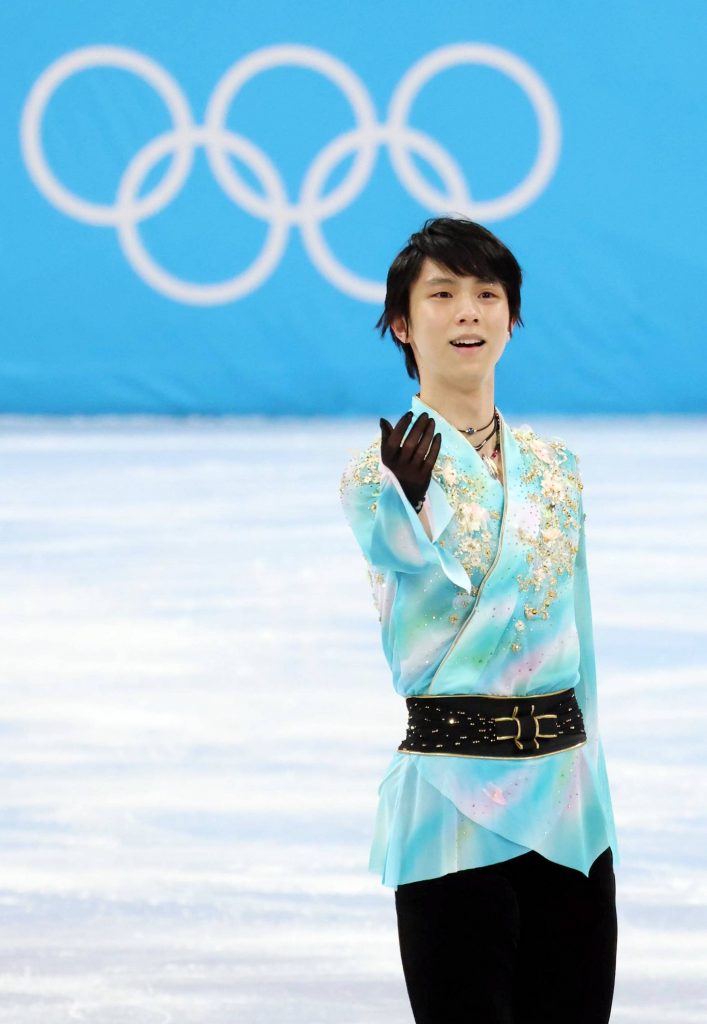
Two-time Olympic champion Yuzuru Hanyu, one of Satomi Ito's top clients during her successful career. (ⒸSANKEI)
Working with Legend Hanyu
Ito is best known for her work with Hanyu, and I asked her what it is like working with the living legend.
“Remembering back, I think the first offer I received from him was in 2015,” Ito said. “At that time I was still a fledgling designer, so I was very surprised. When I first met him during a meeting that was set up for us to go over the costume design, I was so nervous that my hands were shaking the entire time.
“I still get nervous … although my hands don’t shake anymore.”
Ito discussed in detail Hanyu’s thoughts about his costumes.
“Hanyu views the connection between his music and costume to be very important,” Ito commented. “Definitely the functional aspect. It can be difficult to keep a good balance between the appearance and function of the costume, however, Hanyu aims high every season, so I also try to follow his footsteps.
“Compared to five years ago, my costumes have become lighter and have definitely evolved,” Ito added. “I’ve been able to work better with materials and my skills have improved through my experience of working with Hanyu.”
Special Moment in Ito’s Career
Having designed many costumes for Yuzu, I asked if she had a particular favorite.
“They’re all special, so I can’t choose,” Ito replied.
A crowning moment for Ito’s career came in February of 2018, as she watched Hanyu and Uno with a historic 1-2 finish for Japan at the Pyeongchang Olympics. Even for the most modest person, I presumed she must have felt incredible pride at their achievements and hers.
“When both Hanyu and Uno ― I also created his costume ― stepped up onto the podium, I was very happy,” Ito recalled. “When I was watching the live performance, I wasn’t able to stay calm and relaxed because I was worried about the costumes. The only thing running through my head was, ‘Congratulations and thank you for wearing my costumes.’ ”
Ito’s Work with Other Stars
Along with national champion Rika Kihira and former world medalists Satoko Miyahara and Wakaba Higuchi, Ito has also designed costumes for former world titlist Evgenia Medvedeva of Russia and 2019 world junior champ Tomoki Hiwatashi of the US.
How frequently do foreign skaters ask for her services to make their costumes?
“About one in 10 orders,” Ito noted. “With the coronavirus, the orders placed from foreign skaters were all wiped away this year. I had received orders from foreign skaters that I hadn’t worked with before, so it was very disappointing. I’m thinking that hopefully I can design some next year.”
I inquired as to if there was a foreign skater she would like to design for in the future.
“If I had to choose, I would say a female skater from Russia,” Ito stated. “If it was for a domestic skater, I would love to design and create a costume for Mao Asada, an ice dance team, or for a pair.”
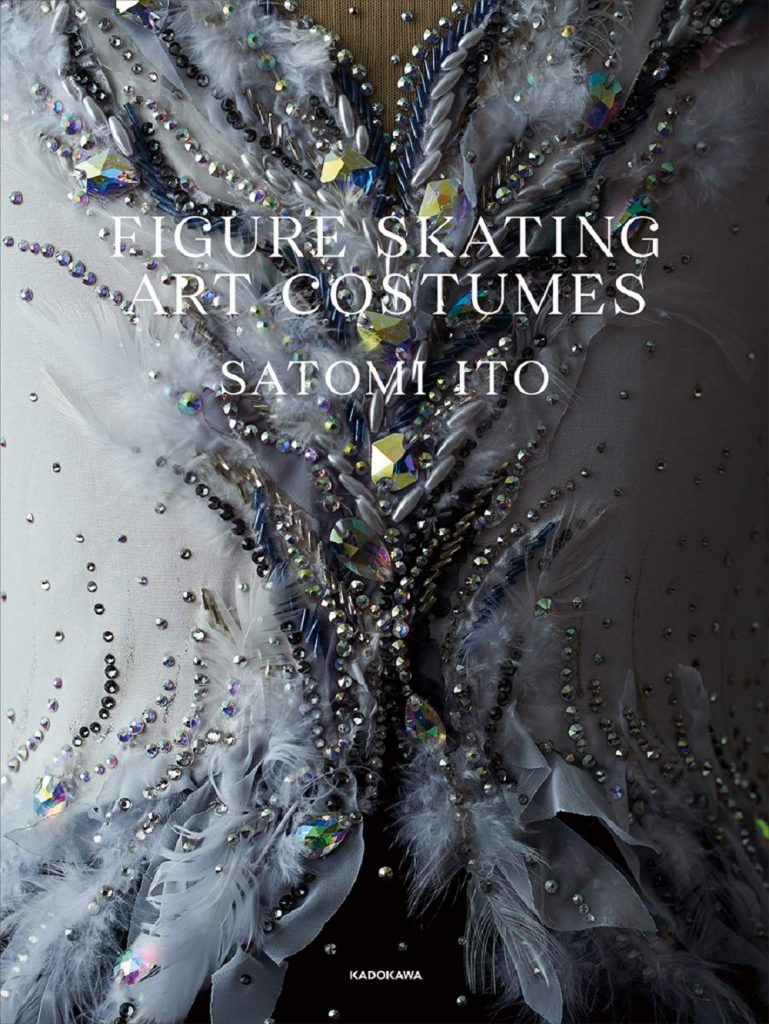
The cover of Satomi Ito's book.
Costumes Showcased in a Book
Ito published a collection of her works in a coffee table book Figure Skating Art Costumes, in March 2020. I wondered how that experience compares with making a costume.
“One of my goals was to release a portfolio that features my works,” Ito declared. “The costume industry has a very blurred line regarding copyright, so I was very content that I was able to publish the portfolio with my name. I sincerely appreciate the skaters who have cooperated with me.”
Ito found the process to be a challenging endeavor.
“Publishing a book was very difficult,” Ito commented. “From the editors and photographers, to the design of the book, there were opinions from many people, so not all of my opinions or views went through.
“When the publisher proposed a draft that was completely different to the image I had of what I wanted my book to be, I almost thought about calling off the entire project,” Ito recalled.
“At last the book was able to grow into something that I was satisfied with, so it was good. However, I don’t think I will release any portfolios in the future. Even if I choose to, I will self-publish it. But, overall, it was a very good experience.”
Speaking of copyright, I asked if she had ever discovered anybody copying her work.
“I’ve seen some on Instagram,” Ito said. “It was strikingly similar, so I was just amazed. When I see them, I just think to myself, ‘Oh it was a good enough costume for someone to copy it.’ ”
Design Aspirations for Other Sports
Having designed costumes for skating, rhythmic gymnastics and ballet, I questioned Ito if there were other sports she would like to design uniforms for.
“I think gymnastics and artistic swimming,” Ito stated. “Other than sports, I would like to design something for weddings or for an opera. I want to create a dress without having to care for its weight.”
Having accomplished so much at a relatively young age, I concluded by asking if Ito would like to design her own line of clothing someday and what her future goals are.
“Is it fine if I understand a brand as a company?” Ito responded. “Until a few years ago I had a period where I was thinking of opening up a company. However, thinking about borrowing an office and employing workers, I felt as though it would just add to my workload and I didn’t know if it would have any benefits. That’s why I’ve stayed as a freelance designer.
“I’m happy being able to design and create costumes, so I don’t think that will change in the future.”
A Goal to Teach Others
Moving forward, Ito wants to impart her wisdom about the art of costume design to others.
“My next goal … I want to find some closure with the Beijing Olympics,” Ito said. “I’m not thinking of quitting creating costumes, however, I think my peak will be the next Olympic Games.
“In fact, I haven’t received any orders from the skaters of the coming generation,” Ito noted with humor. “I receive many inquiries like, ‘Please teach me how to make costumes’ from mothers and students, so I think in the future it would be nice if I can open something like a private school.”
RELATED:
- First part: [ICE TIME] Yuma Kagiyama: An Inside Look at the Making of a Champion
- Second part: [ICE TIME] Illustrator Mika Matsuda Brings Personalities of Skaters to Life with Her Work
Author: Jack Gallagher
The author is a veteran sports journalist and one of the world’s foremost figure skating experts. Find articles and podcasts by Jack on his author page, here on SportsLook, and find him on Twitter @sportsjapan.

